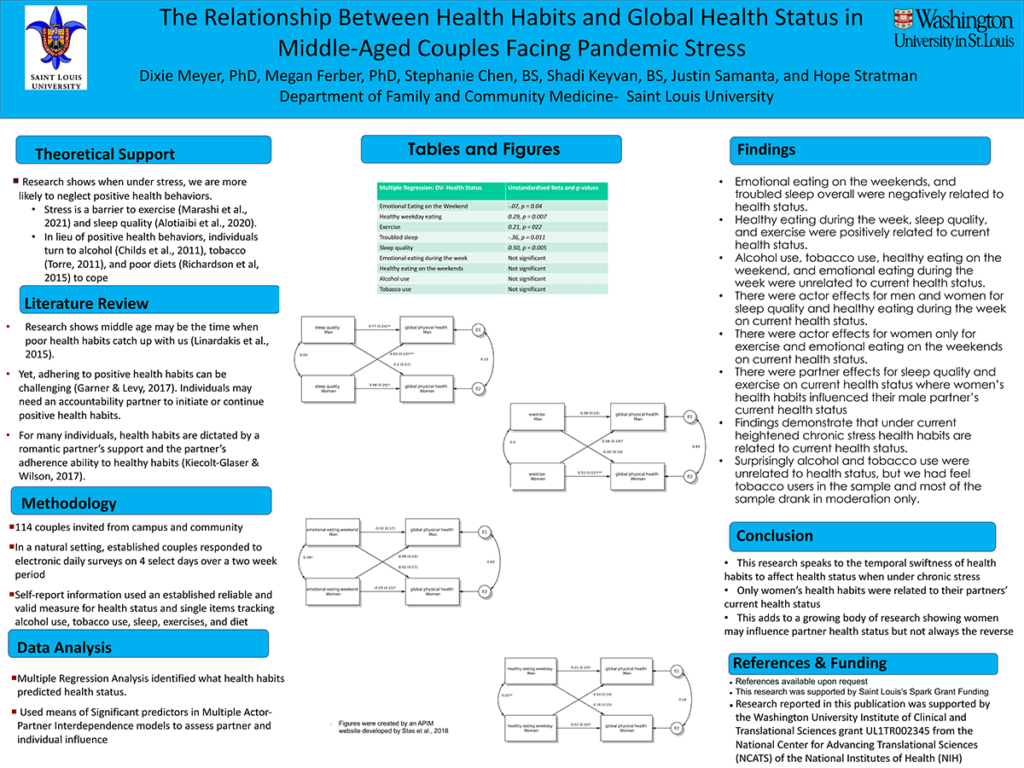Introduction: When individuals are in duress, they often neglect health habits. Research shows romantic partners often adopt similar health habits. This study sought to examine the relationship between health habits and current health status in stressed couples during the winter (2020-21) peak of the COVID-19 pandemic.
Methods: Different gender couples (i.e., male/female; N=228, n=114) completed this ecological momentary assessment study over a two-week period. Couples selected two work days and two weekend days to complete daily surveys about their day to day activities (e.g. exercise, alcohol use, sleep, diet) and general health habit patterns (e.g., sleep quality, tobacco use, health).
Results: Regression analysis tested the relationship between physical health status and health habits including healthy week day eating, weekend emotional eating, exercise, sleep quality, troubled sleep, tobacco use, and alcohol use. Tobacco and alcohol use were not significant and all other predictors were significant. We tested actor partner effects between physical health status and health habits using the significant predictors from the regression model. Weekday healthy eating and sleep quality were related to physical health status for men and women. Weekend emotional eating was related to health status for women. Exercise showed actor effects for women only and partner effects for men only. Sleep quality showed partner effects for men only.
Impact: We demonstrated that health habits, when under chronic stress, are related to physical health status. Findings show women’s health habits (i.e., exercise and sleep quality) helped bolster men’s health status. This adds to the growing body of research showing a regulatory effect for women to men in different-gender relationships. These results add detail to our understanding about the impact of health habits during times of chronic stress. These results could be used to develop partner-based interventions to help reduce stress within couples to improve each partner’s health habits with the hope of individuals emerging from the stressful time in a healthier state.
Organization – Saint Louis University
Meyer DD, Ferribly-Ferber M, Chen S, Keyvan S, Samanta J, Stratman H, Wang W
